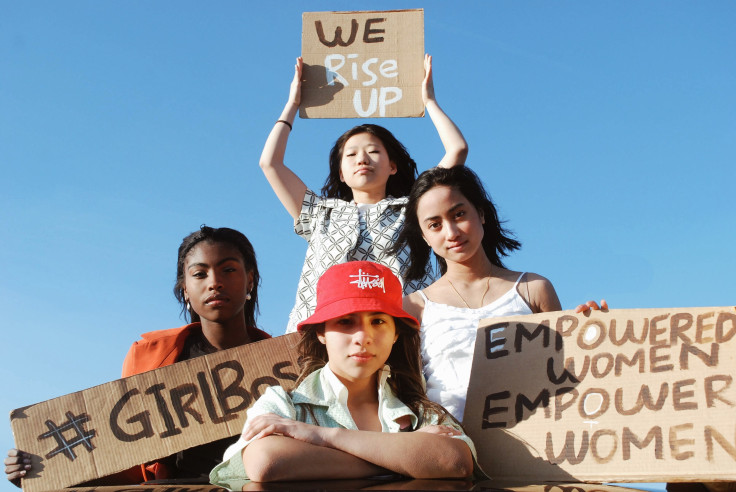A reported 90% of people admit to being prejudiced towards women
The latest Gender Social Norms Index report revealed that 90 per cent of people currently hold prejudiced biases towards women worldwide, and 25 per cent believe that it is justified for a man to beat his wife.

On Monday (12 June), the UN Development Programme (UNDP) released the latest Gender Social Norms Index report. The report, which analysed the past decade, proved that there have been little improvements towards achieving gender equality.
The Gender Social Norms Index report showed that prejudiced attitudes towards women are still prevalent in society, together with the underrepresentation of women in leadership roles. The report found that a staggering 90 per cent of people currently hold prejudiced biases towards women worldwide.
According to the latest data from the World Values Survey, one in four people believe that it is justified for a man to beat his wife, yet they also held strong opinions towards abortion remaining unjustifiable.
Pedro Conceição, the Head of UNDP's Human Development Report Office, revealed: "Half of [the] people worldwide still believe men make better political leaders than women and more than 40 per cent believe men make better business executives than women."
The World Values Survey also exposed that in less prosperous countries, like India, China, and Brazil, 50 – 90 per cent of people also believe that men make better political leaders than women.
Fortunately, the World Values Survey recognised a generational difference in views. The survey noted: "The long-standing belief... is changing, as younger generations replace older ones."
The World Values Survey also addressed how prejudiced beliefs can have "political consequences".
25 percent of the world's population believes that it is justifiable for a man to beat his wife. This is shown by a new UN report, according to TT.
— WORLD AT WAR (@World_At_War_6) June 12, 2023
Using data from the World Values Survey, an international project that studies how values around the world change over time,…
The report argued that oppressing women will inherently lead to movements against gender equality and in some countries, a surge of human rights violations. The presence of gender biases, that call against women being in leadership roles, was also highlighted in the report.
The UN stated: "Women are more skilled and educated than ever before, yet even in the 59 countries where women are now more educated than men, the average gender income gap remains a 39 per cent in favour of men."
While noting that the success of women is an asset to society, Pedro Conceição added: "Lack of progress on gender social norms is unfolding against a human development crisis."
"Everyone stands to gain from ensuring freedom and agency for women," Pedro Conceição added.
The UNDP's report also acknowledged that governments play a key role in forming a shift in gender social norms. According to the Gender Social Norms Index report, governments should work towards altering people's perceptions of parental care responsibilities, as well as rooting out gender stereotypes towards women in specific workforces.
Raquel Lagunas, the Director of UNDP's Gender Team, recognised the economic downfall of maternity leave, saying: "An important place to start is recognising the economic value of unpaid care work."
"This can be a very effective way of challenging gender norms around how care work is viewed. In countries with the highest levels of gender biases against women, it is estimated that women spend over six times as much time as men on unpaid care work," Raquel Lagunas concluded.
New Brief #UNDP report on Gender Social Norms Index . 90% of the population hold at least one negative bias against women. A quarte of the people justifies a men to beat his wife. It is up to us to change these perceptions that kill thousand of women.#Checkyourgenderbias pic.twitter.com/iyvO1sfY8r
— Raquel Lagunas (@RaquelLagunas_) June 12, 2023
The Gender Social Norms Index report did, however, emphasise that changing the narrative attached to women is possible. Expanding on human development through investment, insurance, and innovation will be a step toward gender equality, the report declared.
Already, throughout the last 10 years, there has been a shift in the preconceptions toward the roles of women. A reported 27 of the 32 countries surveyed, showed that there was an increase in the number of people who shared no prejudiced attitudes towards women and supported gender equality.
In order to succeed in abolishing gender stereotypes, the UN concluded that governments should start, "investing in laws and policies that promote women's equality in political participation", along with, "challenging harmful social norms, patriarchal attitudes, and gender stereotypes", and "combatting online hate speech and gender information".
To recognise the rights of women in all spheres of life, the report also recommended using education to address the detrimental threats attached to social norms. According to the UN, educating young people on gender equality in schools, would inherently lead to a change in views and increase the representation of women in leadership roles.
© Copyright IBTimes 2025. All rights reserved.






















